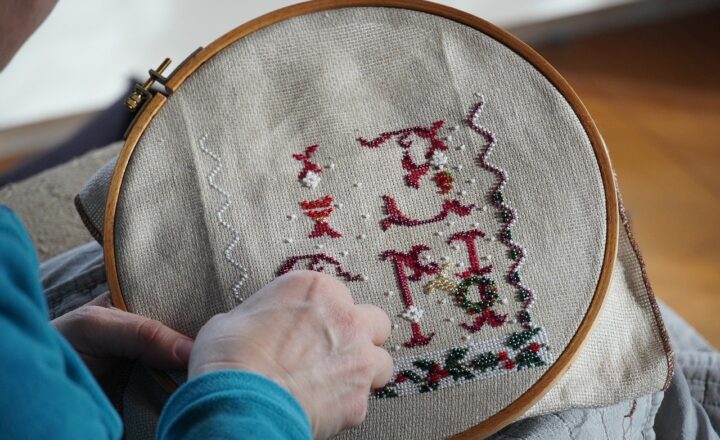Embracing Hobbies: Finding Joy and Balance in Leisure Activities
November 19, 2024

In a fast-paced world filled with responsibilities and distractions, finding time for leisure activities is becoming increasingly important. Hobbies not only provide a break from the daily grind but also offer a pathway to mental relaxation and personal growth. Engaging in hobbies can significantly enhance our well-being, foster creativity, and build community connections.
1. The Importance of Hobbies in Modern Life
Hobbies are often categorized as non-essential activities, but their importance in modern life cannot be overstated. Here are a few reasons why adopting a hobby can lead to a healthier lifestyle:
- Stress Relief: Engaging in enjoyable activities can reduce stress levels. Creative pursuits like painting or gardening allow individuals to focus their minds on something positive, providing mental escape and relaxation.
- Enhanced Creativity: Hobbies stimulate the brain and can lead to increased creativity. Whether through crafting, writing, or music, expressing oneself allows the brain to develop new ideas and perspectives.
- Physical Health Benefits: Many hobbies involve physical activity. Gardening, hiking, dancing, or sports improve cardiovascular health, flexibility, and overall fitness levels, leading to a healthier lifestyle.
- Social Connections: Hobbies often provide opportunities to meet new people and build friendships. Joining a club or class where people share similar interests fosters community and a sense of belonging.
Fostering a hobby can thus create pathways to mental, emotional, and physical wellness, making it a valuable aspect of life.
2. Exploring Different Types of Hobbies
Finding a hobby that resonates with your interests can be a rewarding experience. Here are several types of hobbies to consider:
- Creative Hobbies: These include painting, sculpture, photography, and writing. Creative hobbies enable self-expression and can be therapeutic, allowing individuals to reflect on their thoughts and feelings.
- Physical Hobbies: Activities such as hiking, yoga, and team sports promote health and fitness while boosting mood through the release of endorphins. Engaging in physical activities can also create a structured routine and enhance discipline.
- Crafting & DIY Projects: Crafting activities like knitting, woodworking, or home improvement projects are practical hobbies that can also beautify your space while offering satisfaction through creation.
- Educational Hobbies: Activities such as learning a new language or studying a subject of interest can be both entertaining and enriching, sharpening your knowledge and skills over time.
- Collecting: Collecting items, whether stamps, coins, or vintage items, fosters a sense of nostalgia and accomplishment. It also provides a unique way to connect with history and culture.
With so many options available, finding a hobby that aligns with your personality and interests can lead to fulfilling experiences.
3. Tips for Getting Started with a Hobby
Starting a new hobby can feel overwhelming, especially if you’re unsure of where to begin. Here are some tips to help you get started:
- Reflect on Your Interests: Take a moment to consider what activities have always interested you or what you’ve enjoyed in the past. This reflection can help narrow down your choices and lead you toward a fulfilling hobby.
- Start Small: Don’t feel pressured to invest a lot of time or money right away. Begin with small projects or short classes to test the waters and gradually increase your investment as you discover your passions.
- Join a Group or Class: Finding a community or a class related to your desired hobby can enhance your experience. Not only will you gain knowledge and skills quicker, but you’ll also make new friends along the way.
- Set Realistic Goals: Establish achievable goals for your hobby. These goals can provide motivation and a sense of accomplishment as you progress. Ensure they are specific, measurable, and time-bound to keep you focused
lt;/li> - Be Patient and Persistent: Like any skill, developing a new hobby takes time and practice. Embrace mistakes and learn from them, allowing yourself to grow through the experience. Consistency is key to mastering your chosen hobby.
Embracing these tips can help ease any anxiety associated with starting a new hobby and lead to a joyful experience.
4. The Long-term Benefits of Hobbies
The benefits of engaging in hobbies extend well beyond immediate enjoyment. Here are some long-term advantages:
- Improved Mental Health: Regularly indulging in hobbies can combat anxiety and depression by providing a sense of purpose and accomplishment. They help boost self-esteem and cultivate optimism over time.
- Enhanced Life Skills: Skills learned through hobbies can spill over into everyday life. This includes time management, problem-solving, and even leadership skills developed through teamwork in group activities.
- Increased Happiness: Engaging in pleasurable activities increases overall life satisfaction. Hobbies provide joy and fulfillment, allowing individuals to nurture their passions and immerse themselves in enjoyable endeavors.
Embracing hobbies is essential in not only finding joy but also achieving a well-rounded and healthy lifestyle.
5. Conclusion: Make Time for What You Love
In conclusion, hobbies are not just leisure activities; they are vital investments in our mental, emotional, and physical well-being. They provide a creative outlet, a means of relaxation, and an opportunity to connect with others. Exploring different hobbies brings enrichment to life, allowing individuals to embrace their unique passions and find purpose amidst the hustle.
Make the time to discover and engage in activities you love. Whether it’s painting, hiking, or learning a language, nurturing your hobbies will cultivate joy and balance in your life. So go ahead, pick up that paintbrush, hit the trails, or start learning that new skill; your future self will thank you for it.







